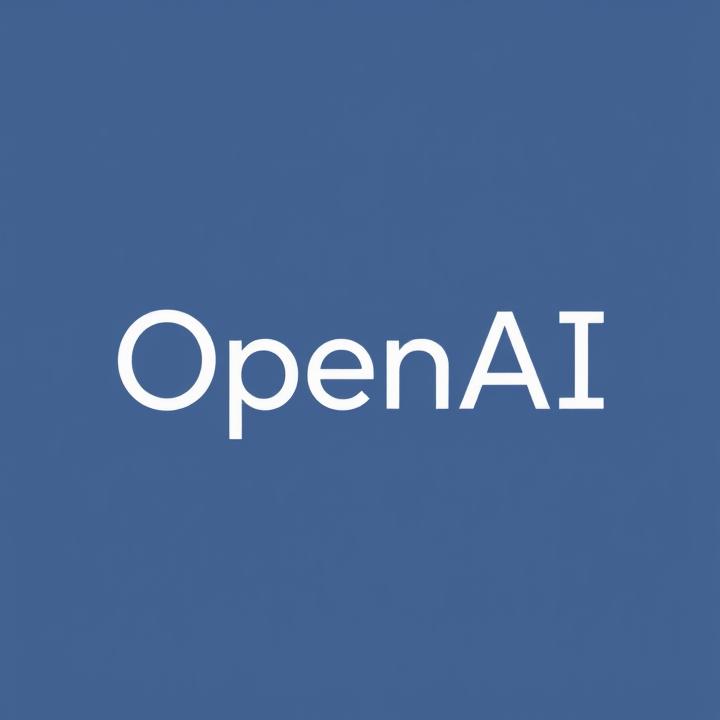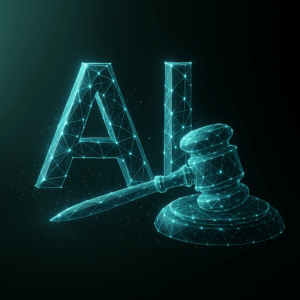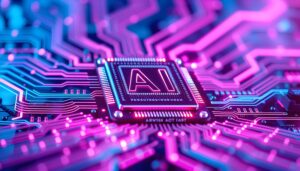
OpenAI has hired its first chief economist to guide the company’s understanding of AI’s economic implications, focusing on labor markets, productivity, and long-term societal effects.
In a significant move that underscores the growing importance of artificial intelligence (AI) in global economic systems, OpenAI has hired its first chief economist. This strategic hire is aimed at helping the company understand and manage the economic impacts of AI technologies as they become increasingly integrated into industries, labor markets, and everyday life.
The role of the chief economist will focus on guiding OpenAI’s approach to AI’s effects on jobs, wages, productivity, and broader economic growth. As AI tools like OpenAI’s GPT models gain more influence in business, education, and technology, there is a pressing need to evaluate how these advancements will shape the economy in the short and long term. OpenAI’s decision to create this role reflects the organization’s commitment to addressing both the opportunities and challenges AI poses for the global economy.
1. The Strategic Role of a Chief Economist at OpenAI
OpenAI’s decision to appoint a chief economist highlights the company’s broader goal of understanding and mitigating the economic disruptions caused by AI technologies. As AI systems become more capable of automating tasks, the labor market faces potential shifts, raising concerns about job displacement, inequality, and the distribution of economic benefits.
Key Responsibilities of the Chief Economist:
- Labor Market Analysis: Assess the impact of AI-driven automation on different sectors of the economy, focusing on how AI will affect employment, wage structures, and job creation.
- AI’s Effect on Productivity: Measure the potential productivity gains from AI technologies, exploring how AI can boost efficiency across industries.
- Economic Policy Recommendations: Provide insights on how governments and businesses can adapt to the economic changes brought about by AI, shaping policies to foster inclusive growth and mitigate inequality.
- Long-Term Economic Forecasting: Predict how AI will impact global economic trends, helping OpenAI understand the broader implications of its technology over the next decade.
- Ethical and Equitable Growth: Ensure that AI advancements lead to fair and equitable economic benefits for all societal groups, preventing the technology from exacerbating existing inequalities.
2. Addressing AI’s Economic Challenges
As AI systems continue to advance, their potential to disrupt industries has become a central issue for economists and policymakers. The automation of routine and cognitive tasks, enabled by AI, could lead to significant shifts in labor demand. The chief economist’s role at OpenAI will be to assess these shifts and provide data-driven insights into how AI can be deployed to benefit workers and industries without causing undue harm.
2.1 AI and Job Displacement
One of the primary concerns surrounding AI is its potential to displace workers, particularly in sectors where repetitive tasks can be automated. As AI models like OpenAI’s GPT continue to evolve, they are increasingly capable of performing tasks traditionally handled by humans, such as customer service, content creation, and even technical troubleshooting. The chief economist will focus on identifying the jobs most at risk of automation and working with policymakers to create strategies that support workers in transitioning to new roles.
2.2 Economic Inequality
AI’s transformative effects could lead to greater economic inequality if the benefits of AI technologies are not distributed fairly. The chief economist’s work will involve analyzing how AI affects income disparities and proposing solutions to ensure that the advantages of AI-driven growth reach all parts of society, including historically marginalized communities.
2.3 Productivity and Economic Growth
On the positive side, AI has the potential to significantly boost productivity and drive economic growth. By automating time-consuming tasks, AI can free up human workers to focus on more creative and strategic work, increasing overall efficiency. OpenAI’s chief economist will play a key role in understanding how these productivity gains can be harnessed to stimulate economic growth while minimizing disruptions to existing industries.
3. Shaping AI Policy and Economic Strategy
The hiring of a chief economist also signals OpenAI’s growing involvement in the public discourse surrounding AI regulation and economic policy. As governments worldwide grapple with the challenges posed by AI, OpenAI’s chief economist will provide essential insights into how AI policy should be shaped to ensure that technological advances benefit the broader economy while protecting workers and consumers.
3.1 Collaborating with Policymakers
By working with government agencies, think tanks, and international organizations, OpenAI’s chief economist will help craft policies that maximize the positive economic impact of AI. This collaboration could include advising on workforce development programs, reskilling initiatives, and regulatory frameworks that encourage innovation while safeguarding economic stability.
3.2 Supporting Economic Resilience
AI is set to transform key industries such as healthcare, finance, manufacturing, and logistics. The chief economist’s role will include ensuring that AI deployment is aligned with strategies that promote economic resilience, particularly in the face of global challenges like climate change, aging populations, and shifting supply chains.
4. A Holistic Approach to AI’s Economic Impact
OpenAI’s decision to hire a chief economist is a clear indication of its commitment to taking a holistic approach to AI’s development. While AI technologies promise significant benefits, they also come with potential risks that must be carefully managed. By bringing an economist on board, OpenAI aims to ensure that its AI innovations lead to positive economic outcomes that are sustainable, equitable, and inclusive.
4.1 Bridging the Gap Between Technology and Economics
As AI continues to evolve, it will be essential for companies like OpenAI to bridge the gap between technological innovation and economic impact. The chief economist will serve as a key figure in ensuring that OpenAI’s work is informed by a deep understanding of economic principles, allowing the company to navigate the complex intersections of AI, labor, and market dynamics.
4.2 Leading the Conversation on AI’s Future
By appointing a chief economist, OpenAI is positioning itself as a leader in the conversation about AI’s future economic implications. This move signals that the company is not only focused on technological advancement but also on its broader societal responsibilities, ensuring that AI’s benefits are shared by all.
OpenAI’s hiring of its first chief economist marks an important milestone in the company’s efforts to understand and shape the economic impacts of AI. As AI technologies continue to revolutionize industries, OpenAI’s chief economist will play a pivotal role in ensuring that these advancements contribute to equitable economic growth, addressing concerns around job displacement, inequality, and productivity. Through careful analysis and collaboration with policymakers, OpenAI is taking proactive steps to guide the future of AI in a way that benefits the economy as a whole.


